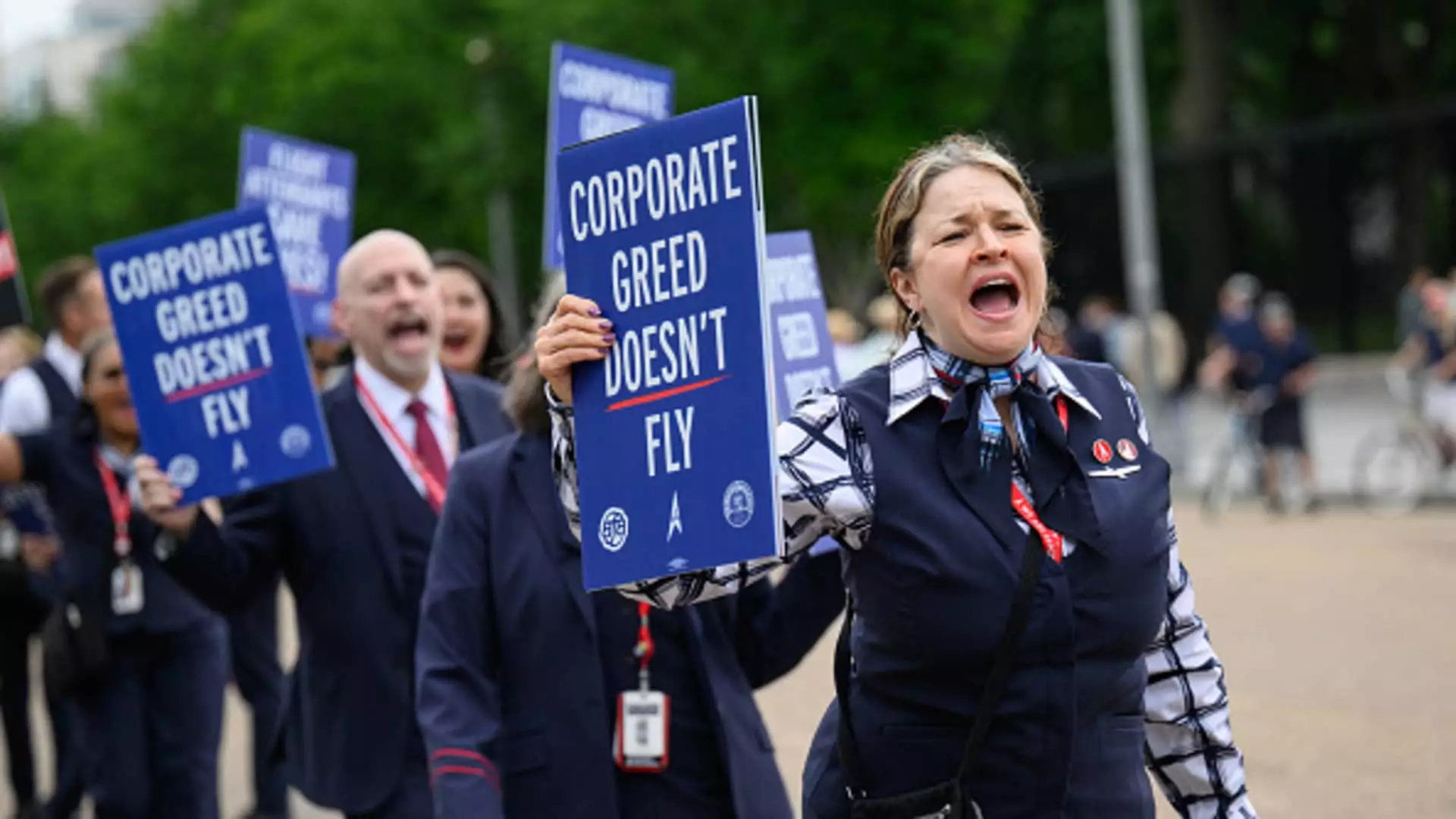The recent development in contract talks between American Airlines and the Association of Professional Flight Attendants has brought to light the ongoing struggle for fair wages. Despite CEO Robert Isom’s proposal to immediately raise pay by 17%, the union representing American Airlines flight attendants rejected the offer. This decision has potentially brought the threat of a strike closer as the two parties continue to differ on major issues such as compensation.
Flight attendants at American Airlines have not received contract raises since before the pandemic, highlighting the long-standing issue of fair compensation. The rejection of the 17% wage increase proposal signifies a deep-rooted divide in negotiations. CEO Robert Isom’s efforts to bridge the gap by offering increased pay without asking for anything in return demonstrate a shift in strategy, but it may not be enough to satisfy the union’s demands.
Julie Hedrick, the union’s national president, emphasized the importance of a longer-term deal that prioritizes the well-being of flight attendants. The rejection of the immediate pay raise proposal indicates a broader concern for fair treatment and compensation within the airline industry. The union’s decision to open a “strike command center” reflects the seriousness of the situation and the need for adequate representation for cabin crew.
While U.S. airline pilots have largely secured new labor deals, flight attendants at American Airlines, United Airlines, and Alaska Airlines are still in the process of negotiating fair contracts. The bipartisan support from House representatives urging the National Mediation Board to assist in completing deals underscores the complexity of labor relations in the airline industry. The potential for a strike among American Airlines flight attendants highlights the urgency for a resolution that prioritizes fair wages and working conditions.
The rejection of American Airlines’ proposal for an immediate pay raise by flight attendants sheds light on the ongoing struggle for fair compensation in the airline industry. The standoff between the airline and the union underscores the need for comprehensive negotiations that address the concerns of flight attendants. As the two parties prepare to meet with federal mediators, the outcome of the talks will not only impact the future of American Airlines but also set a precedent for labor relations within the broader airline industry. Fair wages, adequate benefits, and job security are fundamental rights that all employees, including flight attendants, deserve. It is essential for both parties to engage in transparent and productive discussions to reach a mutually beneficial agreement that upholds the principles of fairness and equity.

